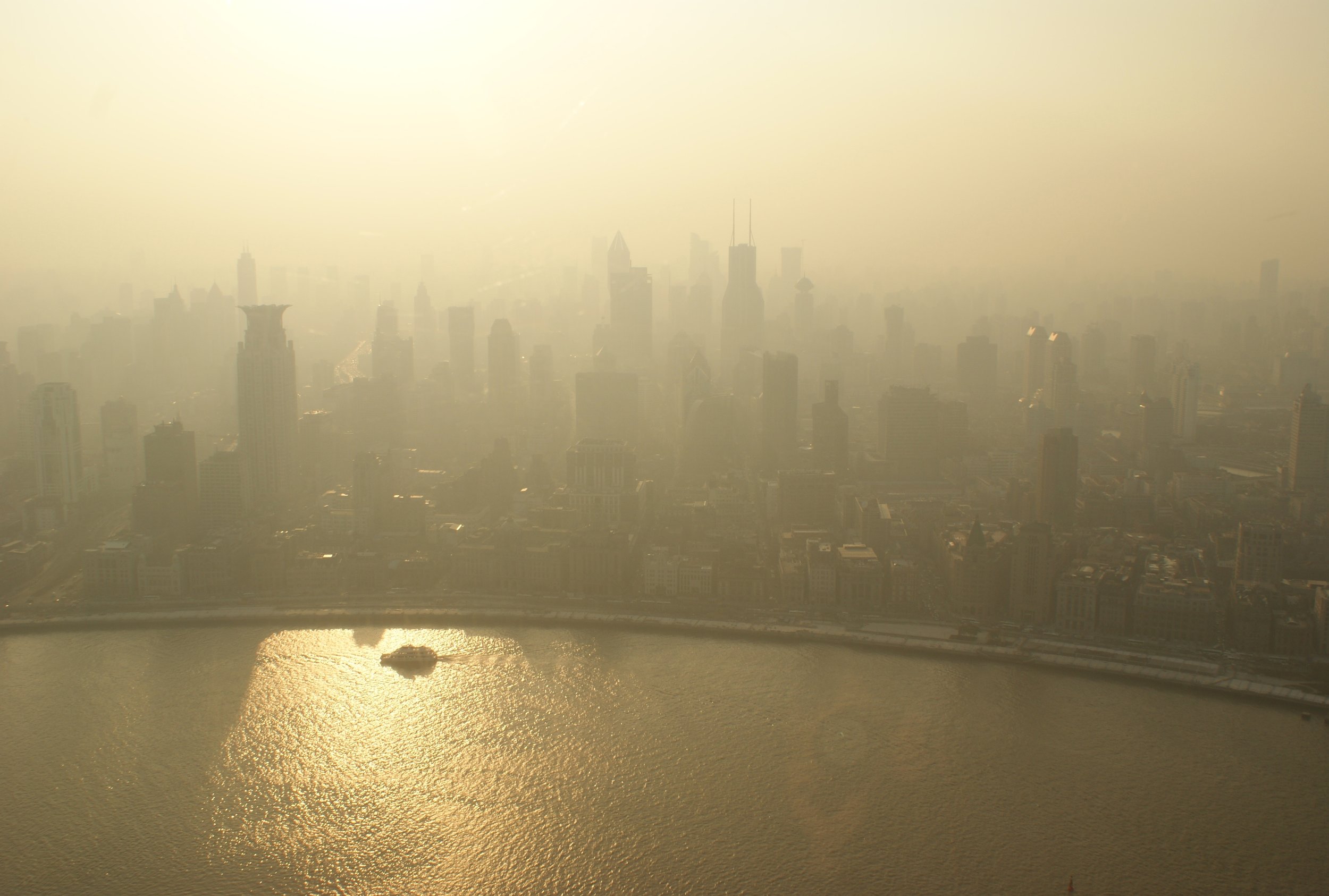So we sent my oldest off to college and cleaned out her bedroom, discovering dozens of empty junk food wrappers and a few boxes of ultra-processed "healthy" food-like bar products. Apparently, when you have a mom who is super into eating right and writing about eating right, one way you rebel is to sneak nutritionally-empty processed food products. Take that, Mom!
But what happens when "junk" food is the only option? A disturbing article made the rounds this past week, about the declining nutrient levels in crops, as carbon dioxide levels in our air increase.
Smog...it's what's for dinner. [Photo by Alex Gindin on Unsplash
Apparently, over the past several decades,
...across nearly 130 varieties of plants and more than 15,000 samples collected from experiments over the past three decades, the overall concentration of minerals like calcium, magnesium, potassium, zinc and iron had dropped by 8 percent on average.
Nonsense, you counter. It isn't the carbon dioxide levels--it's that we all eat crops bred for beauty and durability, rather than flavor and nutrients. True, we do eat some beautiful, blah food, but that alone can't explain why bang-for-your-buck has gone down across the board, in everything from popular crops like rice, to things we don't even eat, like algae and goldenrod. Plants now contain more sugar and carbohydrates, and less protein and minerals.
An 8% drop in important minerals can have global repercussions. In developing countries, where diets rely more heavily on plants,
by 2050, they estimate, 150 million people could be put at risk of protein deficiency, particularly in countries like India and Bangladesh. Researchers found a loss of zinc, which is particularly essential for maternal and infant health, could put 138 million people at risk. They also estimated that more than 1 billion mothers and 354 million children live in countries where dietary iron is projected to drop significantly, which could exacerbate the already widespread public health problem of anemia.
In wealthy America, where we eat a lot more meat and a supposedly more diverse diet (debatable, since much of what we eat are processed corn and soy), the decline in food nutrients and increase in sugar and carbs "could further contribute to our already alarming rates of obesity and cardiovascular disease."
I wonder if the gap between food haves and have-nots will continue to widen in the future. Those of us who can afford to will not only buy our local, sustainable, pesticide-free, etc. etc. food, but we might see the rise of boutique farms, where food is grown hydroponically, in special, oxygen-rich, smog-free enclosures. China's forays into smog-handling might provide an unexpected global benefit here.
Chinese "smog-drinking" tower [photo by Andy Wong]
"Food, the way it used to be!" the ads might read. "Remember when an apple a day kept the doctor away? Well, our apples still do."
I have no answers for you. We can eat more vegetables, send more food aid abroad, and try to reduce our energy demands (as I type this on my computer, and my words get uploaded to an energy-sucking server farm which stores them and sends them out to your computer). We can plant a heck of a lot more trees to replace all the ones which burned down recently. We can all install a Chinese smog-drinking tower. In short, we can fasten our seatbelts because it's going to be a bumpy ride.


![Chinese "smog-drinking" tower [photo by Andy Wong]](https://images.squarespace-cdn.com/content/v1/5898e1d3579fb3f7fe154f8a/1505924900112-GHOB4MT3O79QXCOJKNOR/Smog+Tower.jpg)

